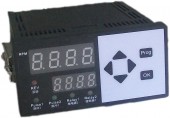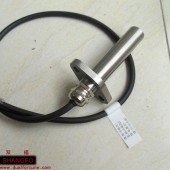| Guidance 指路人 g.yi.org |
Software / Reginald / Examples / registry.rex |
|
/* An example of FUNCDEF'ing various Windows registry * functions. */ OPTIONS "WINFUNC NOSOURCE C_CALL" NUMERIC DIGITS 10 /* ======================================================= * Functions used by all tests below. * RegCloseKey() is used a lot to close a key below. * RegOpenKeyEx() is used when querying keys/values. * RegCreateKeyEx() is used when creating keys. * ======================================================= */ /* Register RegOpenKeyEx once */ FUNCDEF("RegOpenKeyEx", "32, void, str, 32u, 32u, void stor", 'advapi32') /* Register RegCloseKey */ FUNCDEF("RegCloseKey", "32, void", 'advapi32') /* Register RegCreateKeyEx once */ FUNCDEF("RegCreateKeyEx", "32, void, str, 32u, str, 32u, 32u, 32u, void stor, 32u stor", 'advapi32') /* ======================================================= * Querying binary characters * ======================================================= */ /* Register RegQueryValueEx once, so we can call it * as many times as we like. We'll define it once callable * as RegQueryBinary to query a binary value. Note: We set * the char stor to hold 260 bytes. You should make it as * large as the largest binary string you expect to read from * the registry */ FUNCDEF("RegQueryBinary", "32, void, str, void, 32 *, char[260] stor, 32 * dual", 'advapi32', 'RegQueryValueEx') /* The first arg to RegopenKeyEx is either the return from * RegOpenKeyEx() for the parent key, or one of the following * numbers: * * 2147483648 for HKEY_CLASSES_ROOT * 2147483649 for HKEY_CURRENT_USER * 2147483650 for HKEY_LOCAL_MACHINE * 2147483651 for HKEY_USERS * 2147483652 for HKEY_PERFORMANCE_DATA * 2147483653 for HKEY_CURRENT_CONFIG * 2147483654 for HKEY_DYN_DATA * * Second arg is the name of the key to open. * * Third arg can be omitted. * * Fourth arg is one of the following: * * 983103 = all types of access/notification. * 131097 = read a value, and enumerate keys, or be notified when a key/value changes. * 131078 = write a value or create a key. * 1 = read a value only. * 2 = write a value only. * 4 = create a key only. * 8 = enumerate keys only. * 16 = Be notified when a key/value changes. * 32= Create a symbolic link only. * * The fifth arg is the name of the REXX variable where you * want the key handle stored. * * RETURNS: 0 if success, or an error number. If the key doesn't * exist, an error is returned. */ /* Open the "HKEY_LOCAL_MACHINE\SYSTEM\MountedDevices" key for reading */ err = regopenkeyex(2147483650, "SYSTEM\MountedDevices", , 131097, handle) IF err == 0 THEN DO /* The first arg to RegQueryValue is the return value from * RegOpenKeyEx() for the key that contains this value: * * Second arg is the value name. * * Third arg can be omitted. * * Fourth arg is the name of a REXX variable with one of the following values: * * 0 = No defined value type * 1 = Null terminated string * 2 = A null-terminated string that contains unexpanded references to * environment variables (for example, "%PATH%"). * 3 = Binary data in any form * 4 = 32-bit number in Intel format (little endian) * 5 = 32-bit number in big endian format * 6 = Symbolic Link * 7 = An array of null-terminated strings, terminated by two null characters * 8 = Resource list in the resource map * 9 = Resource list in the hardware description * 10 = REG_RESOURCE_REQUIREMENTS_LIST * * Fifth arg is the name of the variable where you want the value stored. * * Sixth arg is the name of the variable where you store the max size of the * string buffer. We set this to 260 when we FUNCDEF'd RegQueryValueEx. * After the function returns successfully, this variable will be set to how * long the returned value is (in bytes). * * If success, 0 is returned, otherwise an error number. If the buffer we * specified is too small, we'll get an error, and the above variable will * be set to how big a buffer we need. */ /* Read the binary value "\DosDevices\C:" */ valuetype = 3 /* Binary type */ myvaluesize = 260 err = regquerybinary(handle, "\DosDevices\C:", , valuetype, myvalue, myvaluesize) IF err \== 0 THEN SAY "Error reading binary value:" err ELSE DO SAY "Length of binary data is" myvaluesize "bytes" /* For reading a binary value, we have to trim off only what we need */ myvalue = LEFT(myvalue, myvaluesize) END /* Close the key */ regclosekey(handle) END ELSE SAY "Can't open the key:" err /* ======================================================= * Querying a string value * ======================================================= */ /* Register RegQueryValueEx again, but define it for easily * querying a nul-terminated string value. Note: We set * the str stor to hold 260 bytes. You should make it as * large as the largest string value you expect to read from * the registry */ FUNCDEF("RegQueryString", "32, void, str, void, 32 *, str[260] stor, 32 * dual", 'advapi32', 'RegQueryValueEx') /* Open the "HKEY_CURRENT_USER\Software\Reginald" key for reading */ err = regopenkeyex(2147483649, "Software\Reginald", , 131097, handle) IF err == 0 THEN DO /* Read the string value "OPTIONS" */ valuetype = 1 /* String type */ myvaluesize = 260 err = regquerystring(handle, "OPTIONS", , valuetype, myvalue, myvaluesize) IF err \== 0 THEN SAY "Error reading string value:" err ELSE SAY "String =" myvalue /* Close the key */ CALL regclosekey(handle) END ELSE SAY "Can't open the key:" err /* ======================================================= * Create a numeric (DWORD) value * ======================================================= */ /* Register RegSetValueEx, defined to easily * save a numeric value (in Intel format) */ FUNCDEF("RegWriteNumber", "32, void, str, 32u, 32u, 32 *, 32u", 'advapi32', 'RegSetValueEx') /* Open the "HKEY_CURRENT_USER\Software\Reginald" key for reading/writing, and create it if it doesn't exist */ err = regcreatekeyex(2147483649, "Software\Reginald", , , , 983103, , handle, result) IF err == 0 THEN DO /* Write the numeric value "100" to the registry file "MyValue" as a binary DWORD */ myvalue = 100 err = regwritenumber(handle, "MyValue", , 4, myvalue, 4) IF err \== 0 THEN SAY "Error writing numeric value:" err /* Close the key */ regclosekey(handle) END ELSE SAY "Can't open/create the key:" err /* ======================================================= * Querying a numeric value * ======================================================= */ /* Register RegQueryValueEx again, but define it for easily * querying a numeric value (in Intel format) */ FUNCDEF("RegQueryNumber", "32, void, str, void, 32 *, 32 * stor, 32 * dual", 'advapi32', 'RegQueryValueEx') /* Open the "HKEY_CURRENT_USER\Software\Reginald" key for reading */ err = regopenkeyex(2147483649, "Software\Reginald", , 131097, handle) IF err == 0 THEN DO /* Read the numeric value "Digits" */ valuetype = 4 /* Intel number type */ myvaluesize = 4 err = regquerynumber(handle, "Digits", , valuetype, myvalue, myvaluesize) IF err \== 0 THEN SAY "Error reading numeric value:" err ELSE SAY "Number =" myvalue /* Close the key */ regclosekey(handle) END ELSE SAY "Can't open the key:" err RETURN /* If any of the FUNCDEF statements fail, it will jump to here. */ CATCH FAILURE CONDITION("M") |
|
| © Mon 2025-6-30
Guidance Laboratory Inc. Email:webmaster1  g.yi.org Hits:0 Last modified:2013-06-18 23:35:16 g.yi.org Hits:0 Last modified:2013-06-18 23:35:16
|
 |
|||
|
|
 搜索
搜索 论坛
论坛 Home
Home 回顶部
回顶部







